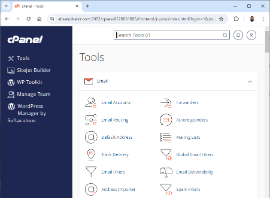Creating a website or web application using PHP and MySQL without a framework or CMS has several advantages, especially for developers who want full control over their project. Here are some key benefits:
1. Full Control and Customization
- You are not restricted by framework conventions or CMS limitations.
- You can structure the code and database exactly how you want.
- No unnecessary features or bloated code, leading to optimized performance.
2. Lightweight and Fast Performance
- Frameworks and CMSs come with extra features that may not be needed for your project, increasing load time.
- Without those additional layers, a raw PHP and MySQL setup is leaner and more efficient.
3. Better Understanding of Core Technologies
- Working directly with PHP and MySQL helps you gain deeper knowledge of how web applications work.
- You learn essential concepts such as security, database management, and performance optimization.
4. No Dependency on Third-Party Updates
- Frameworks and CMSs need frequent updates, which may introduce compatibility issues.
- By coding from scratch, you are not dependent on external updates that may break your application.
5. Lower Server Resource Usage
- Since there is no framework overhead, hosting requirements are minimal.
- The application can run efficiently even on shared hosting with low server specifications.
6. Enhanced Security (if done correctly)
- Many CMSs and frameworks have known vulnerabilities that hackers can exploit.
- By writing your own code, you control security implementations such as sanitization, authentication, and access control.
7. No Learning Curve for Frameworks
- Some frameworks (like Laravel, Symfony) require time to learn their structure and features.
- If you’re familiar with PHP and MySQL, you can start coding right away.
8. Freedom in Choosing Your Own Architecture
- You can follow any design pattern (MVC, layered architecture, etc.) that suits your project.
- You’re not forced to use framework-specific conventions.
9. Easier Debugging and Maintenance
- Since you wrote the code, debugging is more straightforward compared to debugging framework-generated errors.
- No need to rely on external documentation or community support for resolving framework-specific issues.
10. No Licensing Restrictions
- Some CMSs and frameworks come with licensing restrictions or commercial add-ons.
- A custom PHP-MySQL setup is entirely free to use and modify without restrictions.
When Should You Use a Framework or CMS Instead?
While custom PHP and MySQL offer flexibility and performance, frameworks and CMSs (like Laravel, WordPress, CodeIgniter, etc.) are useful when:
- You need rapid development with built-in tools.
- Security and authentication need to be handled efficiently.
- You are working on a large-scale project with many developers.
If you are building a small or custom project and want full control, using PHP and MySQL without a framework or CMS is a great choice. However, for large projects with complex features, a framework can speed up development.



